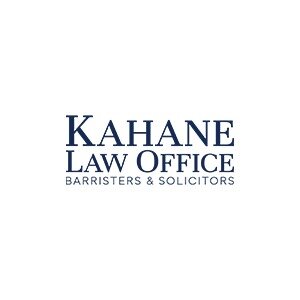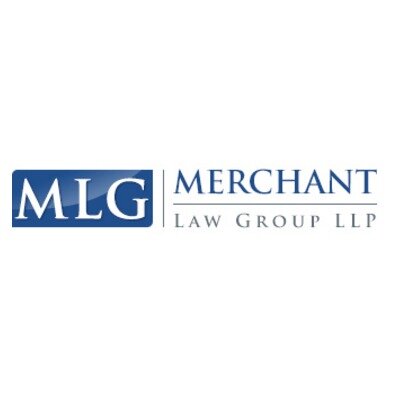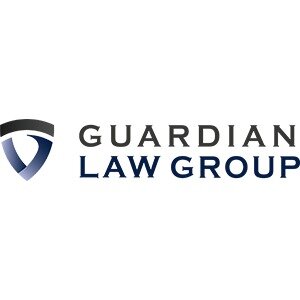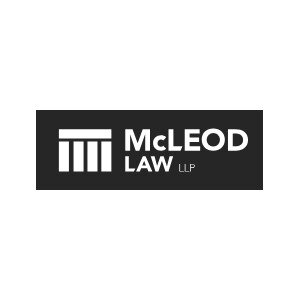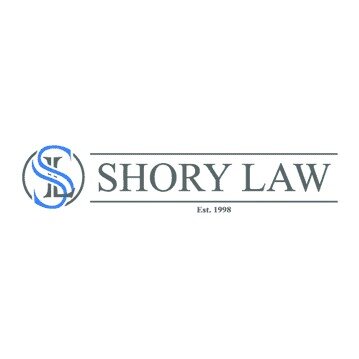Best ESG Advisory & Compliance Lawyers in Calgary
Share your needs with us, get contacted by law firms.
Free. Takes 2 min.
List of the best lawyers in Calgary, Canada
About ESG Advisory & Compliance Law in Calgary, Canada
Environmental, Social, and Governance (ESG) Advisory & Compliance law focuses on helping organizations understand and adhere to evolving standards and regulatory requirements related to environmental performance, social responsibility, and corporate governance. In Calgary, a city with a strong energy sector and growing diversity of business, ESG issues are increasingly shaping how organizations manage risks, ensure sustainability, and maintain investor confidence. Legal professionals in this area assist corporations, nonprofits, and institutional investors with developing and implementing ESG strategies, disclosing relevant information, and ensuring compliance with local, federal, and international regulations.
Why You May Need a Lawyer
People and organizations in Calgary may require legal help for ESG Advisory & Compliance in several situations:
- Ensuring compliance with environmental laws, climate change regulations, and reporting standards
- Developing or reviewing ESG strategies, policies, and codes of conduct
- Preparing ESG disclosures for investors and stakeholders
- Managing risks relating to human rights, Indigenous relations, workplace diversity, and community impact
- Responding to regulatory inspections, audits, or enforcement actions
- Drafting and negotiating contracts with ESG provisions and supply chain obligations
- Navigating shareholder proposals linked to ESG commitments
- Assessing mergers, acquisitions, or investments from an ESG due diligence perspective
- Mitigating potential reputational harm relating to ESG issues
- Expanding into new markets with differing ESG requirements
Local Laws Overview
Calgary businesses and organizations must comply with a mix of municipal, provincial (Alberta), and federal requirements. Environmental laws are mainly governed by Alberta's Environmental Protection and Enhancement Act, the federal Canadian Environmental Protection Act, and additional Calgary bylaws relating to waste, water, and land use. Social and governance compliance draws from the Alberta Human Rights Act, Occupational Health and Safety legislation, the Business Corporations Act, and public company disclosure requirements through securities regulators.
Recent trends include pressure to adhere to global ESG reporting frameworks such as the Task Force on Climate-related Financial Disclosures (TCFD) and expectations set by the Canadian Securities Administrators (CSA). Calgary's energy sector, in particular, is under increasing scrutiny to demonstrate transparency in emissions, climate risks, and transition plans.
Frequently Asked Questions
What is ESG and why is it important for Calgary businesses?
ESG stands for Environmental, Social, and Governance. These are non-financial factors that investors and stakeholders use to evaluate a company's commitment to sustainability, ethical practices, and effective governance. ESG is important for Calgary businesses to attract capital, minimize legal risks, and build long-term value.
Are there mandatory ESG disclosure requirements for businesses in Calgary?
While not all private businesses are required by law to disclose ESG metrics, publicly traded companies in Canada must follow specific disclosure guidelines from securities regulators and may need to report material ESG risks. Mandatory climate-related disclosure rules are also being developed.
How do Calgary laws address environmental compliance?
Calgary organizations must comply with both provincial laws such as the Environmental Protection and Enhancement Act and federal laws like the Canadian Environmental Protection Act. These set out standards for emissions, waste management, water use, and pollution control.
What are the risks of not complying with ESG-related laws?
Non-compliance can result in fines, sanctions, lawsuits, damage to reputation, loss of investor confidence, and restricted access to capital. There may also be operational disruptions from regulatory investigations or public backlash.
How can an ESG lawyer help with investor relations?
An ESG lawyer can help draft disclosures, respond to shareholder proposals, align your practices with investor expectations, and ensure consistent communication regarding ESG commitments and progress.
Do ESG laws apply to small businesses in Calgary?
Certain ESG laws-such as environmental regulations and human rights requirements-apply regardless of business size. However, detailed ESG reporting is typically only required for larger companies or those seeking external investment.
What should a business include in its ESG policy?
A strong ESG policy should address environmental stewardship, fair employment practices, diversity and inclusion, anti-corruption measures, ethical governance, and clear reporting mechanisms. Legal input can help ensure the policy meets regulatory expectations.
Can ESG compliance affect mergers or acquisitions?
Yes, ESG compliance is increasingly a factor in due diligence for mergers and acquisitions. Potential ESG liabilities or weak ESG performance can affect valuation, negotiation, and regulatory approvals.
Are Indigenous rights part of ESG compliance in Calgary?
Yes, respecting Indigenous rights and engaging with Indigenous communities form a critical aspect of the social and governance components of ESG, particularly for projects affecting traditional lands. Legal guidance is often required to ensure meaningful consultation and compliance.
What steps should businesses take to stay up to date with ESG regulations?
Businesses should monitor legal developments, participate in relevant industry groups, undertake regular compliance audits, provide staff training, and consult with legal professionals specializing in ESG.
Additional Resources
For further guidance on ESG Advisory & Compliance in Calgary, consider these resources:
- Alberta Environment and Protected Areas - for provincial environmental regulations
- City of Calgary - for local environmental bylaws and permits
- Canadian Securities Administrators (CSA) - for securities law and disclosure requirements
- Alberta Human Rights Commission - for social and workplace compliance
- Canadian Bar Association - for guidance on emerging ESG legal topics
- Chamber of Commerce and industry associations - for training and best practices
Next Steps
If you need legal assistance with ESG Advisory & Compliance in Calgary, start by defining your objectives and challenges. Gather any relevant documents and details about your organization’s operations and current ESG practices. Next, consult a lawyer or firm with specific experience in ESG law in Alberta, as they will be best equipped to offer tailored advice. Consider scheduling an initial consultation to assess risks, compliance obligations, and opportunities for strengthening your ESG program. Staying proactive ensures your business meets legal standards and builds a foundation for sustainable growth.
Lawzana helps you find the best lawyers and law firms in Calgary through a curated and pre-screened list of qualified legal professionals. Our platform offers rankings and detailed profiles of attorneys and law firms, allowing you to compare based on practice areas, including ESG Advisory & Compliance, experience, and client feedback.
Each profile includes a description of the firm's areas of practice, client reviews, team members and partners, year of establishment, spoken languages, office locations, contact information, social media presence, and any published articles or resources. Most firms on our platform speak English and are experienced in both local and international legal matters.
Get a quote from top-rated law firms in Calgary, Canada — quickly, securely, and without unnecessary hassle.
Disclaimer:
The information provided on this page is for general informational purposes only and does not constitute legal advice. While we strive to ensure the accuracy and relevance of the content, legal information may change over time, and interpretations of the law can vary. You should always consult with a qualified legal professional for advice specific to your situation.
We disclaim all liability for actions taken or not taken based on the content of this page. If you believe any information is incorrect or outdated, please contact us, and we will review and update it where appropriate.





